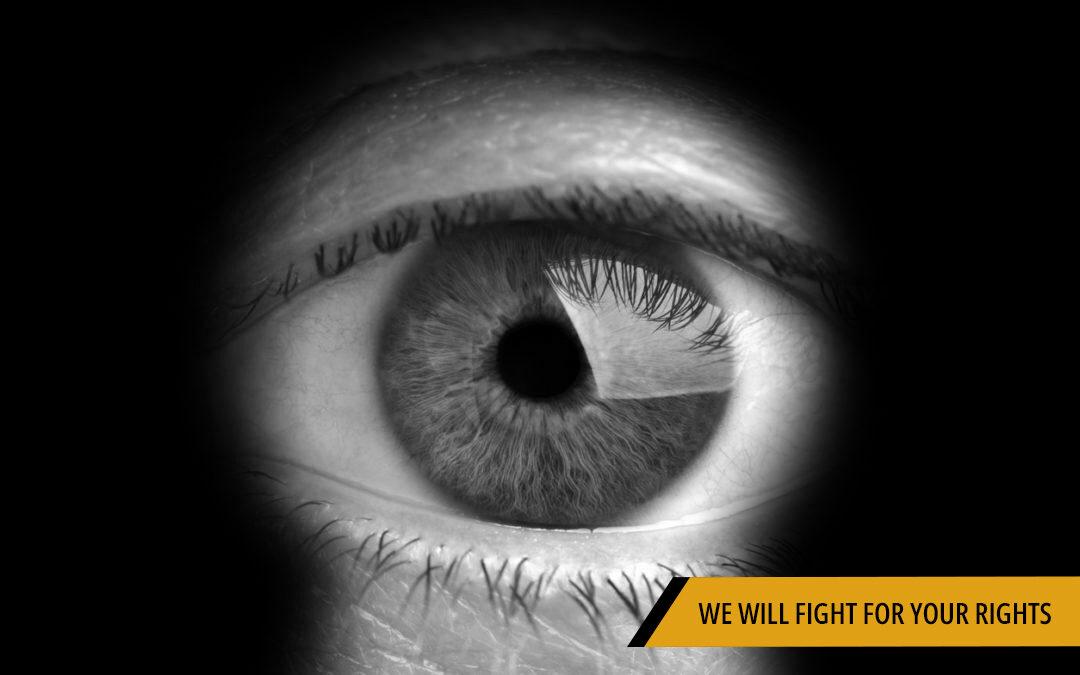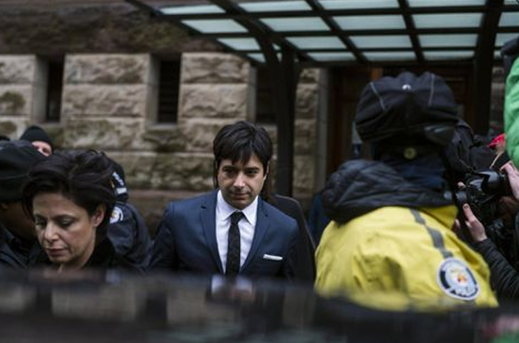
by Admin | Jan 27, 2021 | Uncategorized
Essay Writing Service Writemypapers.org
Writing an essay is, to put it mildly, an absolute nightmare. If it’s a small topic that you’re not particularly fond of, doing all the hard work can be time-consuming and downright frustrating, and writing is even more tedious, especially when it’s a relatively small topic.
Research and selection of the optimal project topic
One of the services you can consider is the online article delivery service. These services offer several different formats such as articles, stories, and even reports, meaning you can use them to write your essays.
The good news is that most of these websites provide their authors with samples of essays they have already written, and the reason for this is that they have done some research and then can show examples of their work. This means that you know exactly what you are getting into and there are no hidden costs or delays.
Satisfaction with the services of Writemypapers.org
It is also worth noting that most of these services are not disappointing in terms of results. Several companies offer quality results, and each will provide you with feedback and recommendations on their customers so you know you are getting the best possible service.
- Second, it also means that you can spend more time researching and finding topics and areas of interest that you may not have thought about.
A good way to decide which one to use is to ask them for a sample and then check essay writer to see if you agree with them. Keep in mind that different writing service providers will have different rates, and you should ask a few different questions before deciding which one to go with.
Another thing you can do is look on the Internet and see what other people think of a good service provider. Think about what other people think and ask them if they think it would be good for you to work with them.

by Admin | Sep 30, 2019 | Uncategorized
Oh My, How Disturbing! Disorderly Conduct In Canada
Indecent Act, Cause Disturbance, Trespassing at night (prowl at night)
The story we’re going to tackle today is that of the Toronto Maples Leafs’ player, Auston Matthews. He was charged with disorderly conduct in Arizona. According to a CBC report, Matthews and his group were approached by a person who believed they were intoxicated. Apparently they attempted to open a locked car door to the vehicle in which the complainant was sitting. She was security personnel. She confronted the group and Matthews allegedly left the conversation, dropped his pants, and grabbed his butt cheeks. He still had his underwear on.
So how does match up to Canadian offenses? Well, offences about disorderly conduct are contained in Sections 173 -179 of the Criminal Code. The offences are important to look at because they’re quite varied and can carry stiff sentences. They may also be subject to mandatory minimums. The offences and their sentences are:
- Indecent Acts (s.173)
- If charged as an indictable offense: Maximum imprisonment: 2 years;
- If charged as a summary conviction: Maximum imprisonment up to 6 months.
- Nudity (s.174)
- This is a special offense. It only applies to people who are nude in a public place (or exposed to public view). Nude means ‘clad so as to offend against public decency or order’. Most importantly of all, a person cannot be prosecuted under this section without the consent of the Attorney General, by virtue of s.174(3).
- Causing disturbance, indecent exhibition, loitering, etc. (s.175)
- Punishable on summary conviction
- Obstructing or violence to or arrest of an officiating clergyman (s.176)
- Maximum imprisonment up to 2 years.
- Note, there is also s.176(2), which is disturbing religious worship or certain meetings. A person guilty of an s.176(2) offense is punishable on summary conviction
- Trespassing at night (s.177)
- Punishable on summary conviction
- Vagrancy (s.179)
- Punishable on summary conviction
The offense against clergymen contained in s.176 is a strange one. We’ve talked about it before in our article on Assault in Canada.
As we can see, there’s quite a number of disorderly conduct offenses in the Criminal Code. Not all of them are as severe as each other. The offence of committing and Indecent Act is obviously far more serious than the charge of causing a disturbance. In cases where an Indecent Act involves exposure to children under the age of 14, Sex Registry issues arise; SOIRA and the Ontario Sex Offender Registry Act (Christopher”s Law) apply.
Had Matthews been in Canada, he may have been charged with committing an indecent act. The Criminal Code section 173.(1) provides that everyone who willfully does an indecent act in a public place in the presence of one or more persons, or in any place with intent to insult or offend any person is guilty of an offense. Alternatively, he could have been charged under s.175, for causing a disturbance. Causing a disturbance includes s.175(1)(b) “openly expos[ing] or exhibit[ing] an indecent exhibition in a public place”. It also includes s.175(1)(a), causing a disturbance by being drunk in a public place. If the allegations against him are true, they might satisfy this section as well.
We recently defended a client who was allegedly observed masturbating with genitals exposed on a park bench. When a group of teenagers approached he allegedly pulled up his shorts but continued to touch his genital area. When the teenagers had passed he allegedly pulled his shorts down again and exposed his genital area. He was charged with committing an Indecent Act. The ages of the teenagers, although not spelled out, appeared to be over 14 years. The criminal code allows the Crown to decide whether to proceed by indictment or by way of summary conviction. We actually negotiated a resolution to a charge under s. 175 (1) (b) “openly exhibits an indecent exhibition” and our client received a conditional discharge even though the Crown was seeking a conviction discharge on sentence. The s. 175(1)(b) charge is much less serious than a charge under s. 173 for an Indent Act. The charge under s. 175 only permits the Crown to proceed by way of summary conviction and there is no risk of registration on a Sex Registry.
To get a better grasp, it may be worth looking at a few locals who have been charged under these sections. For example, a Kingston councilor was charged with causing a disturbance, although charged were later dropped. He allegedly yelled, screamed, and slammed a bus’ front window. The Councillor allegedly stopped his bicycle in front of the bus to restrict its movement, and also placed a child on the pavement in front of the bus. The councilor alleged he protested peacefully because his child was denied service. Of note, the Councillor’s charges were only dropped due to an agreement reached between his defense lawyers and the Crown. This included an accountability program and a letter of apology. This result shows the value of experienced, knowledgeable legal advice, with expertise in the particular charges you’re facing.
Another good example is the case of a 30-year-old man from Cornwall who was recently charged with causing a disturbance, as well as domestic assault, and breach of undertaking. Sometimes, as this case shows, causing a disturbance can researtch papers be used as an offense in addition to something else like domestic assault. We’ve talked before about domestic assault in our article HERE
Similarly, a 34-year old Edmonton woman was charged with causing a disturbance and uttering threats to cause death or bodily harm in Peterborough. You can find out more about the offense of uttering threats in our piece about assault and threats, which you can find HERE
An Edmonton woman received a suspended sentence for, among other things, causing a disturbance. She was caught shouting racial slurs at another man. We’ve talked a bit about racism in Canada and the laws that apply to it. You can find that article HERE
As we’ve seen, Canada has a lot of different offenses for disorderly conduct. Some have minimum sentences, and maximums of 10+ years in jail. Others require the attorney general’s consent to prosecute. Causing a disturbance can often be added on to other offenses or stand on its own.
In some cases, withdrawal of charges may be possible. But, it’s key to have knowledgeable and experienced counsel by your side to effectively negotiate a fair resolution with the Crown.
Austin Matthews could have faced possible Criminal Code charges in Canada. However, there is also a charge under the Liquor Licence Act that might also fit the facts [s. 31(4)] – unlawful possession or consumption of alcohol – basically being drunk in public. $65.00 fine. This is not a criminal charge and is a provincial offense like a speeding ticket.
Being aware of this alternative resolution to the criminal charge of cause disturbance is crucial in negotiations with the Crown regarding resolution.

by Admin | Sep 4, 2019 | Uncategorized
Sexual assault is a very serious crime, and it is treated as such by the law, society, and the courts. But it’s often difficult for a court or any outsider to know what happened in a given relationship or interaction. Jian Ghomeshi is an example of that. Originally accused of several charges of sexual assault, Ghomeshi was acquitted, with the judge criticizing the complainants as “deceptive and manipulative”
[1]. But Ghomeshi’s trial sparked a national conversation.

Ghomeshi leaving court in Toronto on March 24, 2016 after being acquitted.
A big part of that conversation was how evidence is heard in sexual assault trials. Bill C-51, which took effect last December, radically changed the rules. It gave complainants the automatic right to make submissions in certain evidence admissibility hearings. Giving this right to the complainants meant that they became a “party” for the court’s purposes. As a party, the complainants became entitled to disclosure from the defendant. Essentially this lets them know the defendant’s theory, and what questions may come up.
But, after a decision from Saskatchewan (not yet reported), that portion of C-51 was deemed unconstitutional. The judge held that:
“The evidence of a complainant is almost always crucial and central in any trial relating to sexual assault. Mandatory disclosure to the prime witness in a prosecution reaches to the centre and integrity of the trial process in such cases.”
https://www.theglobeandmail.com/news/national/jian-ghomeshi-found-not-guilty-of-sexual-assault/article29377074/
The judge in question concluded that C-51 violates sections 7 and 11 of the Charter of Rights and Freedoms. Section 7 is the right to make full answer and defence, and section 11 is the right to a fair trial. The judge held that the changes limited a defendant’s ability to challenge a complainant’s credibility.
One thing to note though, the Saskatchewan case was heard in a lower provincial court. By contrast, two recent Ontario cases upheld the constitutionality of C-51. The Saskatchewan judge distinguished the two Ontario cases because of some differences in legal issues. The Saskatchewan judge referred to Ghomeshi’s case, and the value that cross-examination had in that case. In Ghomeshi’s case, it was the cross-examination which revealed problems with the complainant’s allegations. The Saskatchewan judge noted that even without the C-51 protections, complainants could not be questioned improperly, and that preventing improper questions was very important. Nevertheless, as the defence lawyer in the Saskatchewan case told Brian Platt of the National Post about the case “[t]he Supreme Court has noted that full cross-examination may be the only tool an accused has to challenge the truthfulness of his accuser. The court in A.M. recognized that these provisions would have blunted that tool.”
What this means is that the constitutionality of C-51 is more-or-less ‘up in the air’ at the moment. There are Ontario decisions upholding it, and now another decision holding it to be unconstitutional. To get a firm answer across Canada and court levels, we’ll need to hear from the Supreme Court, and we’re not quite there yet.
The uncertainty in the law, and the blunter tools available to defendants after C-51 make it crucial to retain an experienced, knowledgable lawyer who can guide you through the system, and tell your side of the story. Ghomeshi was acquitted in large part due to his lawyer’s skillful cross-examination of the complainants. It was only that which revealed the inconsistencies. Cross-examining a complainant may be more difficult now, but that’s where experience and expertise come in. Hopefully, we’ll hear from the Supreme Court soon on C-51, and hopefully they come down on the side of fair trials and the right to make full answer and defence. But for now, we’ll have to wait, hope, and see. – S




